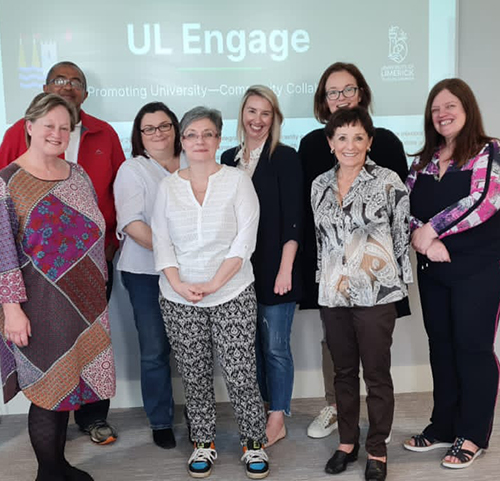Prof Lesley Wood, director of the North-West University’s (NWU’s) Community-based Educational Research (COMBER) focus area, was recently invited by Dr
Maura Adshead from the Limerick University (UL) in Ireland to collaborate in exploring the possibility of integrating more community-engaged learning into higher education curricula.
During the visit, she also collaborated on adapting the UL’s current community diploma – Community Wellness, Empowerment, Leadership and Life skills (C-WELL), for the South African higher education context.
Prof Wood says C-WELL also facilitates engaged and applied research training for specific master’s students within pre-existing and well-established community and/or university partnership collaborations.
“Community partners benefit from supervised graduate-level project assistance, enabling both community and university-based students to develop their research planning, delivery and evaluation skills in real-life projects,” she explains.
The visit was funded by an Erasmus mobility grant, and the subsequent Memorandum of Understanding includes the University of the Free State and Nelson Mandela University, resulting in both national and international collaboration.
Prof Wood says the four-party alliance will work towards mobilising expertise and knowledge across the various disciplines of the universities, in collaboration with external stakeholder communities, to improve service to society and strengthen the institutionalisation of engaged scholarship.
“Such partnerships are important for engaging with communities to co-construct contextual and relevant solutions to poverty, physical and mental health, quality of education, gender-based violence and other issues encompassed in the United Nations Sustainable Development Goals, while also aligned to the strategic objectives of the institutions.”
She says another outcome of the visit was further international collaboration with an additional three European institutions for a large Erasmus funding application under the name of Community-engaged Learning to Transform, Innovate and Capacitate (CELTIC).
“The aims of this project include to redesign curricula to support citizens to address current societal challenges, to develop an educational eco-system that enables individual and community capacity building, and to grow both individual and community social capital in vulnerable communities by supporting lifelong learning, social inclusion and innovative pedagogy,” concludes Prof Wood.

Prof Lesley Wood (in front, second from right), with academics from the University of Limerick during her recent visit.
